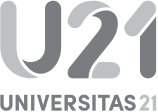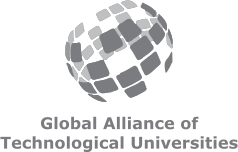Health Precincts Biobank FAQs (for researchers)
What specimens does the Health Precincts Biobank collect?
The Health Precincts Biobank collects biological specimens from any patients who have given written consent and who are undergoing treatment at Prince of Wales hospitals (public and private), St George hospitals (public and private), The Royal Hospital for Women and The Sutherland Hospital. Formerly a cancer biobank, the bulk of the current collection of specimens are from cancer cases. Typically, formaldehyde-fixed, paraffin-embedded (FFPE) blocks and plasma from peripheral blood samples are stored, as well as fresh tissue (for RNA/DNA extraction) when possible. A high-level search of specimens currently held by the biobank can be done through the online catalogue.
What ethics approval is required to use specimens from the Health Precincts Biobanks?
As patients have already given their consent for their banked biospecimens and data to be used for research, only ethical approval for the researcher’s own project is required. All specimens and data distributed by the biobank are deidentified, therefore ethics approval to use these is usually low or negligible risk. However, all researchers should seek advice from their home institution Research Ethics office (or equivalent) to confirm their ethics approval is appropriate.
What data is available with the specimens?
Typically, basic demographic data, clinical data from hospital records (including diagnosis and treatment details), and outcome data, are available for biospecimens. Data from patients’ Medicare Benefits Schedule (MBS) and Pharmaceutical Benefits Scheme (PBS) can also be made available. All data is supplied in a deidentified format.
If the Health Precincts Biobank does not have the specimens I need, can they get hold of them for me?
Unfortunately, the Health Precincts Biobank cannot collect specimens for specific researchers or specific projects. In this case, Biospecimen Services would recommend that the researcher establish an investigator-led (biobank independent) collection, with which Biospecimen Services can provide support. Details about investigator-led collections can be found here.
What does the Health Precincts Biobank charge for their Specimens?
The Health Precincts Biobank operates on a cost-recovery basis. A quote is provided to all applicants before specimens are distributed. A guide to costs can be found here.
I‘m a non-UNSW researcher can I still access specimens from the Health Precincts Biobank?
Yes, all researchers with HREC approval for their study can request specimens through the Health Precincts Biobank.
How can I get access to samples from the Health Precincts Biobank?
Search the catalogue here to estimate the availability of sample types for your study. The number and availability of samples will be confirmed by the Health Precincts Biobank team. Follow the steps below to submit an inquiry through the online form accessed via the specimen catalogue.
- Step 1: Use the Filters on the left of the screen to see available specimens, the search will update as additional Filters are selected. To remove a Filter from your search, select the cross adjacent to the Filter name or uncheck the Filter term. Select your specimens of interest and add into a cart using the green + Add to Cart button on the top right of the screen.
- Step 2: Click the blue Cart button to review your selection, you can continue searching or press the blue Submit Request button to proceed to the Request Confirmation page.
- Step 3: Complete your details including information about the specimens you are interested in and click the blue Submit Request button. A member of the Health Precincts Biobank team will be in touch to discuss your request and take you through the full application process.
- Step 4: Once we determine if we can meet your research needs you will need to submit a full application including your HREC approval and our Research Access Committee will then assess your request. We will also provide you with a quote.
- Step 5: Prior to specimen and/or data distribution your institution will be required to sign a Material Transfer Agreement (external researchers) or an Internal User Agreement (UNSW researchers).







